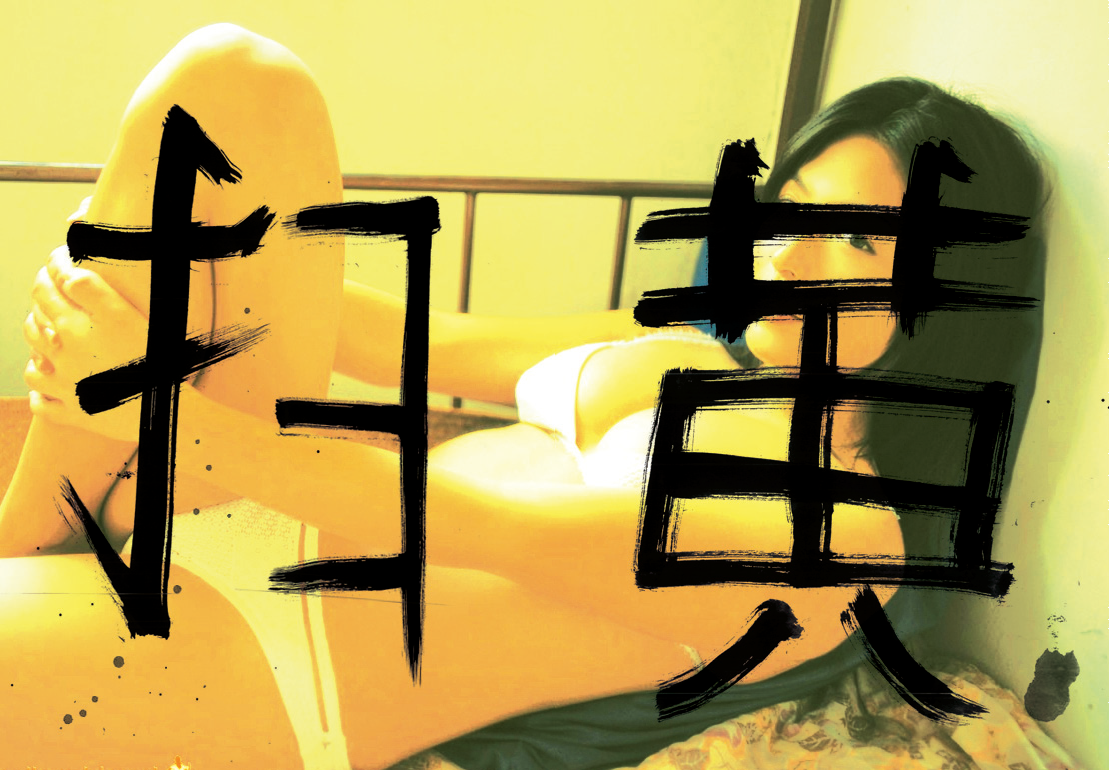
Prudish Republic: Sexual Repression in China
by Jack Harris | April 23, 2015
One night in 2005, the Nanjing police arrived at a gathering at the house of an academic; they came by night, their purpose unstated but obvious. It’s unclear for how long his activities had been known to the authorities, but the academic no doubt crossed a line when he publicly solicited the cooperation of others. All in all, 22 individuals were led away, to reappear at the whim of the state.
So far, so depressingly familiar. Yet Ma Yaochun was not a dissident accused of some kind of political subversion, but the organiser of a huge orgy, later convicted under the quite precise terms of a law prohibiting sex between “three or more people”. Ma wound up with a three-and-a-half-year jail sentence and a good dousing of public humiliation; this is a mere slap on the wrist as far as China’s judges are concerned, but the simple fact of the conviction must give us pause. China is not a theocracy, and has no tradition of sexual moralism (polygamy was common, and homosexuality tolerated, before the importation of ‘western’ – read Christian – values in the early 20th century). Rarely do such outbursts of conservative rage make it into western headlines, which are more preoccupied with the issue of political oppression
Ma isn’t alone in his fate. That particular law is applied only intermittently, but is firmly embedded in the statute books; calls by a few brave liberals for its repeal fail to elicit even a reply from the Party. It forms part of the wider saohuang campaigns (sao meaning ‘sweep away’, huang ‘yellow’, or ‘sexually deviant’). The term appears most often in gleeful news reports detailing successful raids on brothels, which are often spiced up with snapshots of prostitutes cowering before the police or videos of their half-dressed clients fleeing the building.
These exposés are an uneasy blend of prudish hate and voyeuristic fascination. Writers let their moral outrage run wild, calling grandly for “the evil tumour of perversion to be wiped out”, to quote just one. Yet prostitutes are often deliberately put on display and humiliated, their faces shoved into the cameras of the waiting press with evident glee. Granted, neither the press nor the censors speak for all Chinese, and the cruel treatment meted out to hapless hookers is met with disgust and pity by a fair proportion of Chinese on the Internet (which, though ever more regulated, remains the main forum for free debate). But prostitutes aren’t the only targets.
The past few years in China have seen the saohuang campaigns expand rapidly. Ever since officials ordered the removal of ‘lewd’ content from private communication, chatroom posts, blogs and even text messages must now be written without a trace of profanity, sex or anything else deemed unhealthy.
Stop and think about that for a second. The Chinese live under the yoke of one of the world’s most oppressive regimes, in which the individual has no rights beyond those granted by the state. But even within such a system, the fact that you can’t say the word ‘sex’ to a close friend, through a private channel, is absurd. Inappropriate messages are returned unsent, and the incriminating phones or email accounts are blocked. In 2009 the Party even proposed installing on every Chinese computer a program named Green Dam, which would have blocked anything violent, profane, homosexual or otherwise illicit.
Green Dam, probably the largest censorship programme in human history, got a fair amount of coverage in the West. And in China it sparked one of the fiercest public debates in recent years. Polls and online debates revealed general contempt for the programme, and even the supine media laid into it. Users commented on one news website that it was unconstitutional, broke competition laws, was worse than feudalism and “castrated” Chinese men. Dozens simply wrote “fuck off”. In the end, the Party actually backed down, at first claiming that the programme needed further modification (undoubtedly true: it included images of pigs in its definition of porn), and eventually scrapping it altogether.
The point is that the enforcement of social norms is an issue in its own right for the government and not just a covert way of consolidating political power, and it’s probably of more immediate concern to the Chinese public than political rights. Many Chinese will smilingly explain away political repression with well-worn narratives about how China is much freer than it was twenty, thirty or forty years ago, always mentioning the feudalism that the country would supposedly collapse back into were the firm hand of the Party removed. It is after all easier to come to terms with oppression than resist it. But the idea that private life should be censored was a step too far – unlike imprisoning dissidents, it was impossible to justify as an evil necessary for maintaining the state’s stability.
Over the past two years China’s streets have seen the revival of another token of the dark Mao years: the neighbourhood watch committee, which in the past served to eavesdrop on gossiping locals and root out dissent, and whose denunciations were tantamount to a court sentence. Now, marked by red armbands, the committee members shuffle through the streets (most look old enough to have been on the original committees back in the 60s), looking with bleary eyes for ‘trouble’, though nobody I’ve asked has any idea what they’d do if they found any.
The volunteers are an odd sight; living in Beijing, I pass two or three groups a day. Despite their menacing reputation, most are harmless, and they tend to while the days away chatting on street corners, like any other groups of Chinese old and lucky enough to have pensions. As with Green Dam, the Party has at once invested great effort in ‘cleaning up’ society, and given surprisingly little thought to how this should actually be done. Officials aren’t clear on what it is they profess to be stamping out.
This weird combination of fervour and vagueness is best explained by the fact that China’s government is less a totalitarian dictatorship than a bureaucracy. Power is spread among thousands of individuals competing for promotion, and careers are built in the office rather than on the battlefield. Thus successful officials must not only preserve stability, but also be seen to be actually doing something new. A liberal, hands-off approach would only create the opportunity for a more calculating bureaucrat to step in. Sexual deviancy, in this climate, presents a perfect opportunity for the eager bureaucrat – few powerful parties have vested interests in whores and porn, and so a good saohuang campaign in one’s region is an easy way to make a name.
The excesses of the campaigns – the omnipresent censorship, the heavy penalties – stem from the perverse double requirement to stand out as a bureaucrat and not to buck the political trend. The bureaucrat must become the epitome of the prudish norm, exceptional only in the scale of the controls he proposes, the severity of his punishments, the renewed vigour that he injects into old campaigns. It’s impossible to say whether proud liberalism will ever develop, let alone succeed, under such conditions. But don’t hold your breath.




